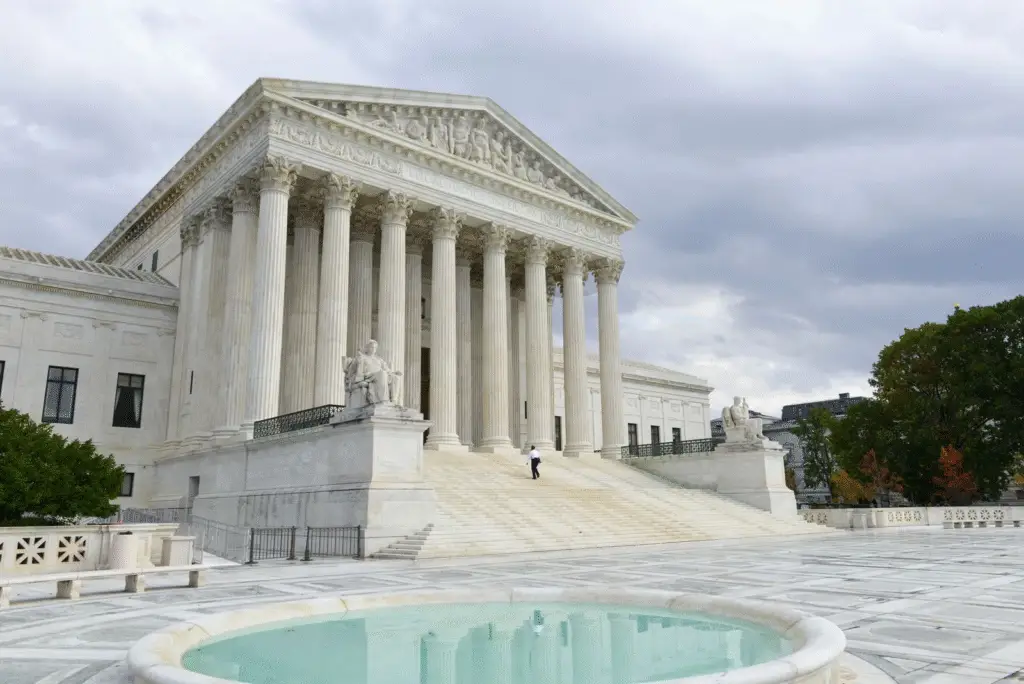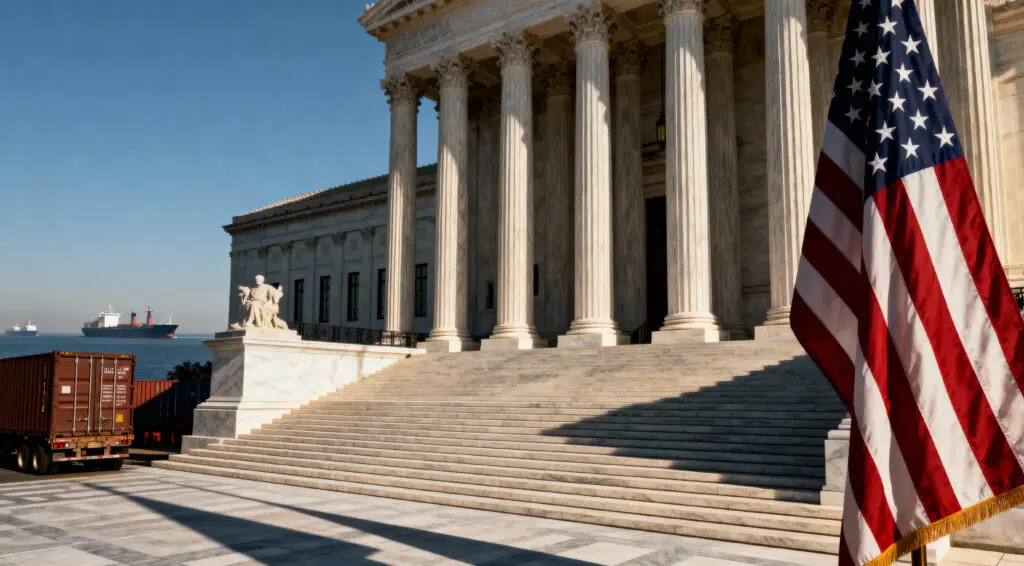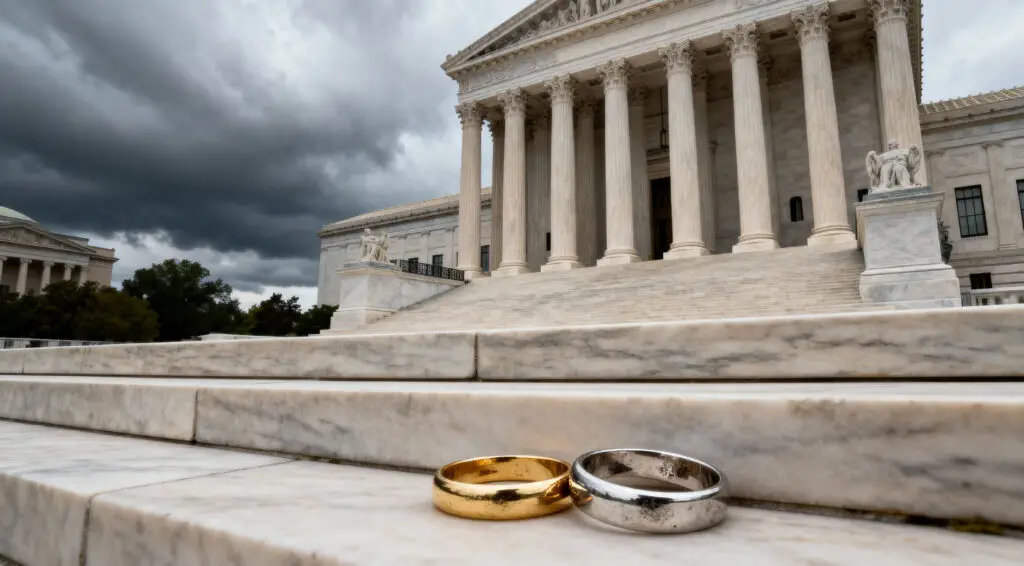Supreme Court Questions Presidential Tariff Powers
People are now paying a lot of attention to President Donald Trump’s broad use of executive power to set global tariffs. The U.S. Supreme Court has said that it is not sure if the president went too far by unilaterally imposing taxes that are usually the job of Congress.
Some others say that Trump’s tariffs, which affect around $360 billion in imports, including steel, aluminum, and consumer products, make it hard to tell the difference between executive and legislative power. The issue has raised worries about how it would affect the economy, commerce with other countries, and the constitutional balance of power in making U.S. trade policy.

Source: Britannica
Legal Doubts and Constitutional Boundaries
Chief Justice John Roberts, along with Justices Amy Coney Barrett and Neil Gorsuch, asked whether the administration’s tariff actions were legal at recent hearings. Congress has always had the right to set taxes and tariffs, so this case might be a big deal in figuring out what the president can and can’t do.
Even though there hasn’t been a decision yet, experts say that the justices’ questions show that the courts are becoming more cautious about presidential overreach. Legal experts say that if the court throws down these tariffs, it might mean that the U.S. has to completely rethink how it enforces trade restrictions.
What to Do if Tariffs Are Overturned
If the Supreme Court says that the present tariffs are outside the law, the government may look for other options via Section 232 of the Trade Expansion Act, which lets tariffs be imposed on national security concerns.
This path, on the other hand, has more obstacles, such as evaluations by several agencies and public consultations. These steps could help protect certain important industries, but they might also make it harder to put them into action and make the country’s trade policy more complicated when global supply networks are already weak.
Recommended Article: American Airlines Cuts Roles at Texas Headquarters
Economic Ripple Effects and Market Concerns
The lack of clarity on tariffs is already hurting corporate confidence and market stability. Costs are hard to anticipate for many businesses that depend on imported goods, and exporters are worried about trade policies that may hurt them.
Analysts say that extended legal battles might make people less likely to invest and hurt international ties. Global supply chains are already under a lot of stress because of political tensions, and they may become much more unstable, which might raise costs for consumers and slow down economic development.
Reactions from Lawmakers and Industry Leaders
Politicians from both parties have expressed worry about how Trump’s tariffs would affect the economy and the Constitution. Some say that safeguarding home industry is important, but it must be done in a way that is legitimate. Some others are worried that lowering tariffs will make it easier for unfair competition to hurt U.S. producers.
In the meanwhile, leaders in the business world have asked for trade policy to be clearer and more consistent. Companies have trouble organizing their production, pricing, and operations across borders when tariff rules aren’t clear.
The Broader Legal and Political Context
The current legal challenge also brings up a bigger question regarding executive overreach and the role of the courts in limiting presidential power. Trump’s harsh trade policies show a long-standing conflict between the necessity for congressional supervision in economic administration and quick presidential action.
People say that this case might create a precedent that future governments will have to follow. If the Supreme Court ruled that the president couldn’t set tariffs, it would effectively give Congress back its power to make economic policy and limit the president’s ability to make trade decisions on his own.
What Lies Ahead for U.S. Trade Policy
The U.S. trade environment will be unclear until the Supreme Court makes a final decision. The court’s doubts signal that the balance of power between arms of government may soon shift. This might change how tariffs are made and enforced in the future.
Right now, both investors and officials are being careful. Not only will the outcome of this lawsuit decide Trump’s trade policy for the future, but it will also set the rules for how the executive branch may influence global trade for years to come.























